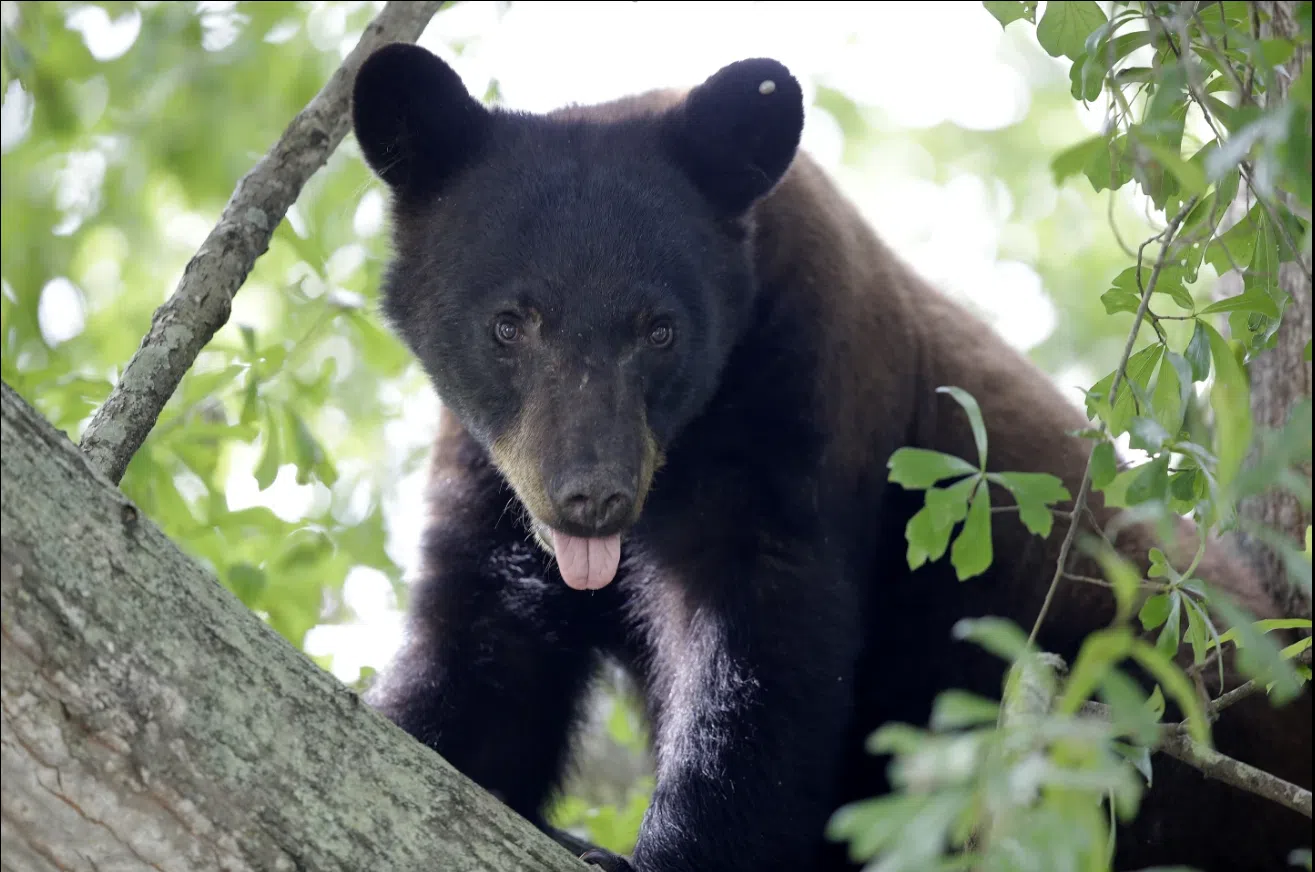BATON ROUGE, La. (AP) — A move is underway that wildlife advocates hope will persuade the state to end plans to overturn a nearly 40-year-old hunting ban on Louisiana black bears.
Jeff Dorson, executive director of the Humane Society of Louisiana, started an online petition in late December after the state Department of Wildlife and Fisheries began a process that could let hunters kill up to 10 bears this year.
The petition, which says it’s better to “educate our residents to live with other creatures .. than to kill them,” had just over 7,500 signatures as of Wednesday.
“There’s nothing amusing or entertaining about killing an animal, especially a big omnivore that has such a small population,” Dorson told The Times Picayune/The New Orleans Advocate.
A Louisiana black bear hunt in 1902 inspired the creation of the iconic Teddy bear toy, when President Theodore “Teddy” Roosevelt refused to shoot a bear that was tied to a tree by members of his hunting party.
Louisiana banned bear hunting in 1988. Four years later, the bear was granted federal protections under the Endangered Species Act. In 2016, the U.S. Fish and Wildlife Service removed the bear from the endangered list after deeming it mostly recovered.
A carefully managed hunting season will have little impact on the species, state biologists have said.
The proposed hunting season would be limited to December 2024 and confined to the northeast corner of the state — an area that includes Tensas, Madison, East Carroll and West Carroll parishes, and portions of Richland, Franklin and Catahoula parishes. The new rules would prohibit killing juvenile bears weighing under 75 pounds (34 kilograms) as well as females with cubs.
Hunting advocates contend killing a few bears each year will help them from becoming a nuisance in rural and suburban areas. In north Louisiana, black bears are increasingly showing up in people’s yards, where they rummage through trash cans, compost bins and bird feeders in search of food. Pecan and corn growers say bears are also taking a toll on their yields.
“There are ever-increasing reports of bear conflict,” said Mark Lance, a southern region coordinator for the Congressional Sportsmen’s Foundation, a hunting advocacy group. “Hunting is the most desirable way to balance their numbers.”
But opponents said reviving bear hunting seasons will put the animal’s recovery at risk.
Dorson said the state isn’t doing enough to curb bear vs. human conflicts. Rather than kill bears, Louisiana should “teach people to coexist,” he said.
That’s what Florida does through its “ BearWise ” program, which helps residents with wildlife-resistant trash and pet food storage and other strategies that can make properties less attractive to bears, he noted. Some Florida communities have reduced conflicts with bears by 70%, according to the Florida Fish and Wildlife Conservation Commission.
Louisiana has a similar program but does far less outreach and education, Dorson said.
Ultimately, he said, bears shouldn’t suffer the consequences of a human-caused problem.
“We’ve taken away most of their land,” he said. “Where else are they supposed to eat?”
Louisiana’s Wildlife and Fisheries department is hosting three public hearings on the proposed hunting season this month in north Louisiana. The first is scheduled Thursday at 6 p.m. at the West Monroe Convention Center in West Monroe. The others will be held Jan. 23 in Delhi at the Black Bear Golf Course Conference Center and on Jan. 25 at the LSU Ag Center in St. Joseph.
Public comments can be submitted to Hanks at jhanks@wlf.la.gov until Feb. 5.









Comments